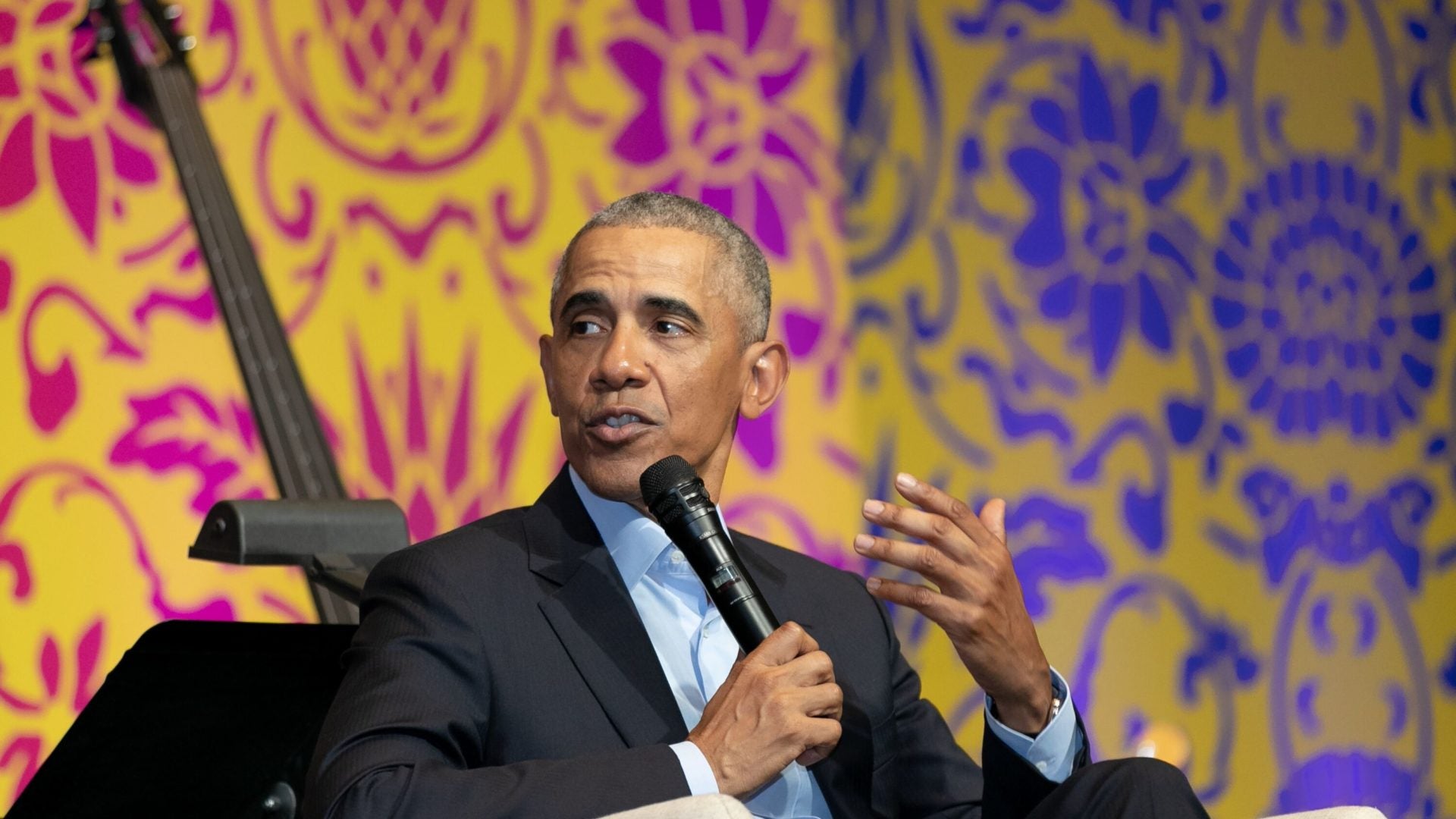
Former President Barack Obama, Hollywood celebs, youth and advocates from around the world gathered in the nation’s capital recently to celebrate the life and continuing legacy of Nelson Mandela.
Oscar-nominated actress Alfre Woodard was the host of a glittery gala on Saturday evening at the Smithsonian’s National Museum for African American History and Culture, which wrapped events commemorating the 100th anniversary of Mandela’s birth, and the 25th anniversary of South Africa’s first democratic elections following the end of apartheid.
The festivities culminated a year-long U.S. campaign promoting the ongoing work of Mandela’s four legacy foundations: Nelson Mandela Foundation, Nelson Mandela Children’s Fund, Nelson Mandela Children’s Hospital and Mandela Rhodes Foundation.
In his welcoming remarks, museum founding director Lonnie G. Bunch, III told the multiracial crowd that “America and South Africa are connected by our shared histories of struggle and the force of our visionaries, who drew inspiration and strength from one another.”
That solidarity was evident when Obama, whose late father hailed from the African nation of Kenya, took the stage for a conversation with Graça Machel, the Mozambique-born activist/educator who was married to Mandela from 1998 until his death in 2013. Their dialogue was moderated by Lesley Williams, CEO of a social innovation project in Johannesburg and an African leader with the Obama Foundation, which aims to inspire, empower, and connect people to change their communities for the better in the U.S. and abroad.
As the trio discussed everything from leadership to equality for women, the 44th president of the United States weighed in on the current state of the world.
“There is always a struggle between hope and fear, between the world as it is and how we’d like it to be. And during times of tumult and disruption, whether it’s technological, economic, information, migration, the danger of us resorting to fear to organize ourselves, falling back on tribe, race, ethnicity, sectarian lines, that always becomes strong.”
“The good news,” Obama added, “is that fear is typically the province of the old, and hope is the province of the young. There are occasional exceptions, like [Mandela] who stayed young at heart throughout life, never succumbed to cynicism, and always believed in the possibility of human connection, mutual understanding, rational thought, all of which could contribute to a society that works for everyone.”
Mandela’s journey from a rural village to ANC freedom fighter, to decades in prison, and eventually the first Black president of South Africa, has inspired people around the world. “Madiba” (as he is sometimes called to denote a sign of respect) intended for his legacy organizations to be “independent but interlinked, each charged with giving expression to a specific aspect of human development,” said organizers. Each represents three distinct yet connected pillars of his goals: advancing democracy, human rights, justice, and social cohesion; promoting the safety of children and helping youth realize their human potential; and developing exceptional leadership capacity throughout Africa and beyond.
“Our organizations represent distinct yet connected pillars of Madiba’s vision,” said Dr. Mandisa Maholwana from the Nelson Mandela Children’s Hospital. “Together, we can all support our shared goals of advancing equality, social justice, and the wellbeing of children.”
“The Mandela 100 USA initiative marks the first time all four of Madiba’s legacy organizations have come together around a campaign,” noted Shaun Johnson, Executive Director of the Mandela Rhodes Foundation. “We are unified in our purpose to jointly advance Mandela’s vision and create sustainable long-term impact.”
The museum gala capped off two days of forums, film screenings and related activities that kicked off last Friday.
The U.S. Chamber of Commerce/U.S.-Africa Business Center and Mandela 100 USA hosted a discussion, “Live the Legacy: Mandela and Doing Business in South Africa” around Mandela’s vision of inclusive economic growth and investment opportunities in South Africa. Besides Machel, guests included former U.S. Secretary of State Madeleine K. Albright and leading business executives.
That same day, Marriott International hosted a luncheon at the historic Mayflower hotel in D.C. featuring music and performances that championed inclusion, equality, peace, and human rights around the globe. Former BET Chair/CEO Debra Lee delivered opening remarks, followed by a keynote address from Machel and a luncheon emceed by actress, Uzo Adubo.
Mandela 100 USA and the Urban Alliance later hosted a screening of the 1996 Oscar-nominated documentary `Mandela: Son of Africa, Father of a Nation,’ for local D.C. public high school students.
During the event at the George Washington University Milken Institute School of Public Health, actor Atandwa Kani from the film Black Panther greeted the students, who are part of the Urban Alliance’s paid internship, job skills training, and mentoring program for underserved youth. That was followed by an introduction of the documentary by its director, Jo Menell, which shows Mandela in his early years and follows his fight for justice, the atrocities of apartheid, and his rise as a South African statesman.
During the museum gala, Kani again shared his talents by delivering excerpts from Mandela’s letters to his family from prison, while Youth Poet Laureate Amanda Gorman recited Maya Angelou’s poem, “Your Day is Done.” Rev. Canon Nontombi Naomi Tutu, the daughter of South Africa’s Archbishop Desmond Tutu, blessed the international dinner prepared by chef Katlego Mlambo, and lively music filled the air. There were performances by the Dave Matthews Band, as well as Sibongile Khumalo, Vusi Mahlasela, Morris Goldberg and Ojoyo.
The weekend was one of joy, remembrance, pride and purpose, said attendees.
“Madiba committed his life to realizing his dream of equality and fairness for all,” said Sello Hatang, CEO of the Nelson Mandela Foundation. “We look forward to connecting with the global community to reflect on the progress we’ve made toward achieving his vision and forging a positive path forward.”
Bongi Mkhabela, CEO of the Nelson Mandela Children’s Fund, called the gathering of American and global Mandela admirers an “honor.” “Our centenary year celebration will help us continue to make his dreams for the future a reality.”